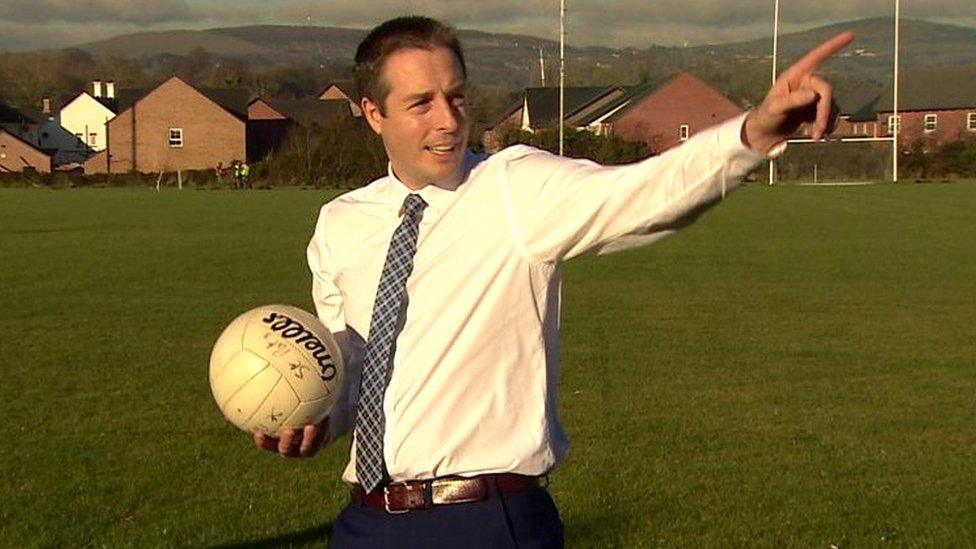Stormont: What legislation still needs passed by NI Assembly?
- Published
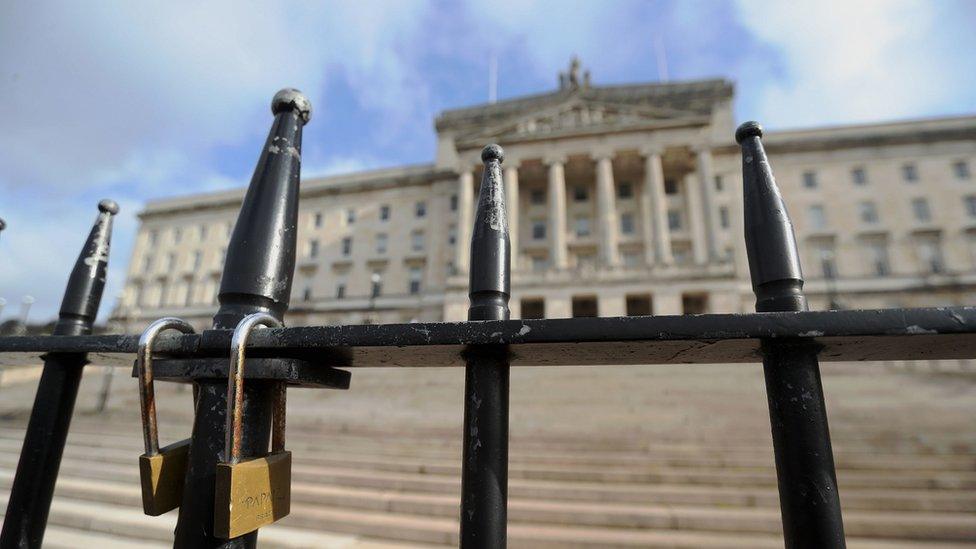
The resignation of First Minister Paul Givan has thrown Northern Ireland's legislative process into question.
In Northern Ireland, the roles of first and deputy first minister are joint, you can not have one without the other.
Mr Givan's resignation triggered the resignation of Deputy First Minister Michelle O'Neill.
Without the first and deputy first minsters, the Northern Ireland Executive will not be able to meet, but the Assembly can continue to sit.
A number of pieces of executive business were signed off on Thursday, including an energy grant scheme, the appointment of Dame Brenda King as attorney general for Northern Ireland and Ian Jeffers as commissioner for victims and survivors.
However, a number of other issues remain pending.
What will it mean for the assembly?
An assembly election is due to take place on 5 May.
Legislation which is due to be completed at Westminster next week will allow the Northern Ireland Assembly to continue for an initial six-week period, with the option that this could be extended to 24 or 48 weeks.
The assembly can still meet, but it will not be business as usual.
As the executive cannot meet issues that need its approval - such as new policy, new legislation, emergency decisions, urgent procedures - cannot go through.
The other ministers in the executive remain in post, but will be limited in what they can do.
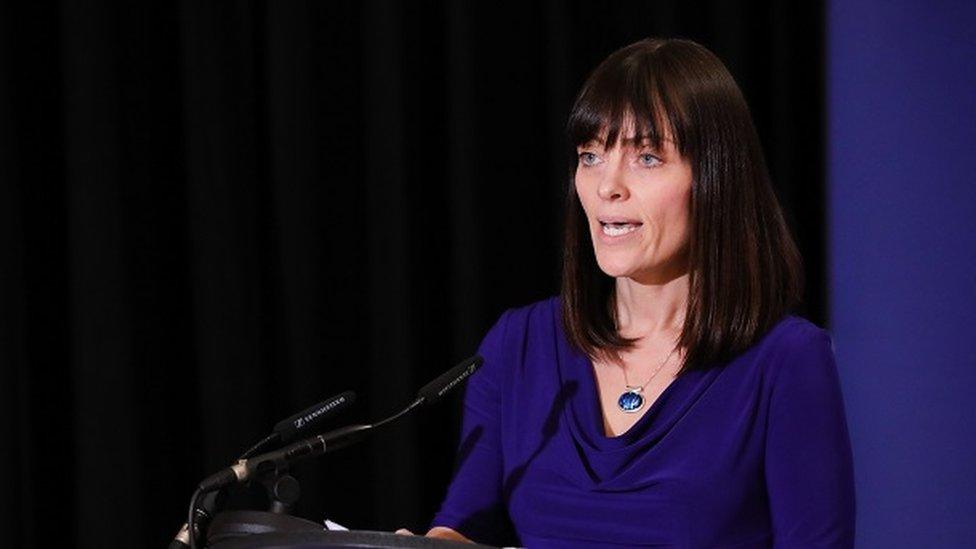
Infrastructure Minister Nichola Mallon said she would be working to ensure existing legislation progressed through the assembly
On Friday morning, Infrastructure Minister Nichola Mallon said she hoped legislation going through the Stormont system can still become law.
"I think we would best serve our citizens by doing our jobs and using every single minute that we have left to get the remaining legislation and regulations through the assembly," she said.
Speaking on Good Morning Ulster, Sinn Féin's Conor Murphy said: "Let's get the parties together, let's get the legislation completed in the next number of weeks, however long that takes to sit in the assembly."
Justice Minister Naomi Long of the Alliance Party said: "Legislation that is already based on established policy that the executive has signed off on should be able to complete if there isn't an immediate election called, so a lot will depend on that.
"There will be a challenge I think in some areas of legislation. where for example if there are significant new policy amendments and we are not as ministers able to go back to the executive to discuss the approach to that."
Ulster Unionist Party leader Doug Beattie called on the secretary of state to say if he intends to call an early election "because if we know when it's coming, we know how we can deal with the legislation.
"But right now, we simply don't know what to do."
Legislation that as received royal assent will not be affected and most of the legislation that is currently being passed should be able to continue.
What proposed legislation is likely to be affected?
A number of bills awaiting further stages may get through if there is enough time in the mandate, which runs out at the end of March.
Bills awaiting completion include:
Climate Change (No. 2) Bill
Organ and Tissue Donation (Deemed Consent) Bill
Protection from Stalking Bill
Justice (Sexual Offences and Trafficking Victims) Bill
Charities Bill
Betting, Gaming, Lotteries and Amusements (Amendment) Bill
Adoption and Children Bill
Welfare Supplementary Payments (Amendment) Bill
Parental Bereavement (Leave and Pay) Bill
School Age Bill
Support for Mortgage Interest etc (Security for Loans) Bill
Will the executive budget go through?
The draft budget - which sets the level of Stormont departments' spending - is out for public consultation until 7 March.
But if the Executive is no longer in place, it won't be able to approve the budget.
DUP leader Sir Jeffrey Donaldson said his party had previously made clear it would not agree the draft budget proposed by Sinn Féin's finance minister, Mr Murphy.
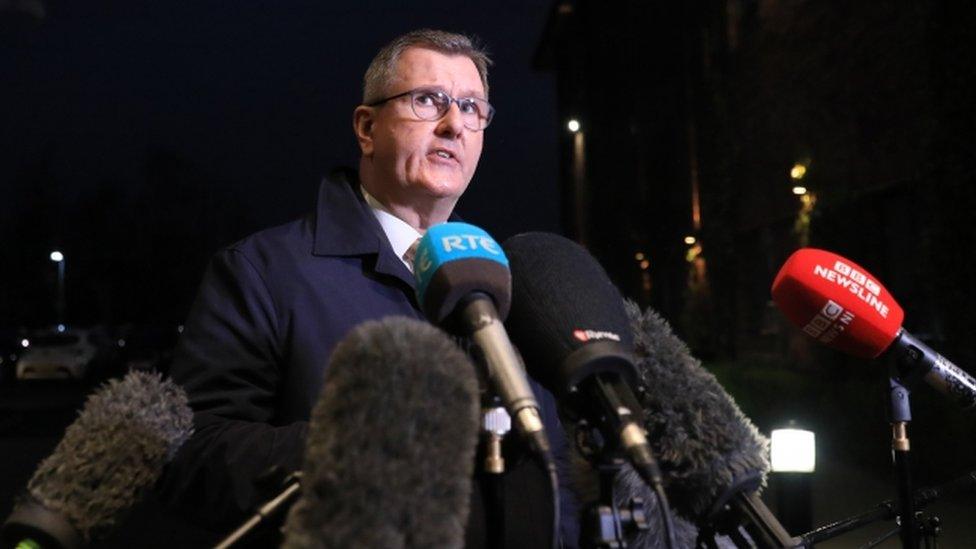
Sir Jeffrey Donaldson said executive ministers would be able to spend money from the budget
However, he added: "The law makes full provision for a budget in Northern Ireland.
"Not only will there be a budget, there are ministers in place in each of the departments to spend that budget."
Mr Murphy said the budget had to be set by the end of the financial year and long-term strategic decisions need to be made.
Stormont departments will still be able to distribute cash but crucially, will not be able to plan ahead for the next three years.
Many sectors have expressed concern about the political crisis and what it means for their funding.
North Down YMCA runs a wide range of youth outreach and drop-in services, and its chief executive said the voluntary sector needed the assembly to guarantee a three-year budget.
"That would allow us to plan for the longer term, to give staff more security, and to start to address the needs that we see growing more and more around us," said Stuart Buchanan.
Will historical abuse victims receive an apology?
Survivors of abuse at Northern Ireland's children's homes were to have received an official apology from the first and deputy first ministers on 11 March.
However, in the absence of a first and deputy first minister it's not clear what will happen.
The Irish News is reporting that some abuse survivors are considering legal action to force an apology from a representative of the state.
Sir Jeffrey Donaldson said the DUP have discussed with other parties the appointment of a minister in the executive to deliver that apology.
However, Sinn Féin's Mr Murphy said he was not aware of those conversations.
What about coronavirus regulations?
When it comes to the pandemic, the executive was due to meet on 10 February to discuss the remaining Covid restrictions.
It is understood ministers were likely to agree to a large-scale lifting of most of the remaining regulations.
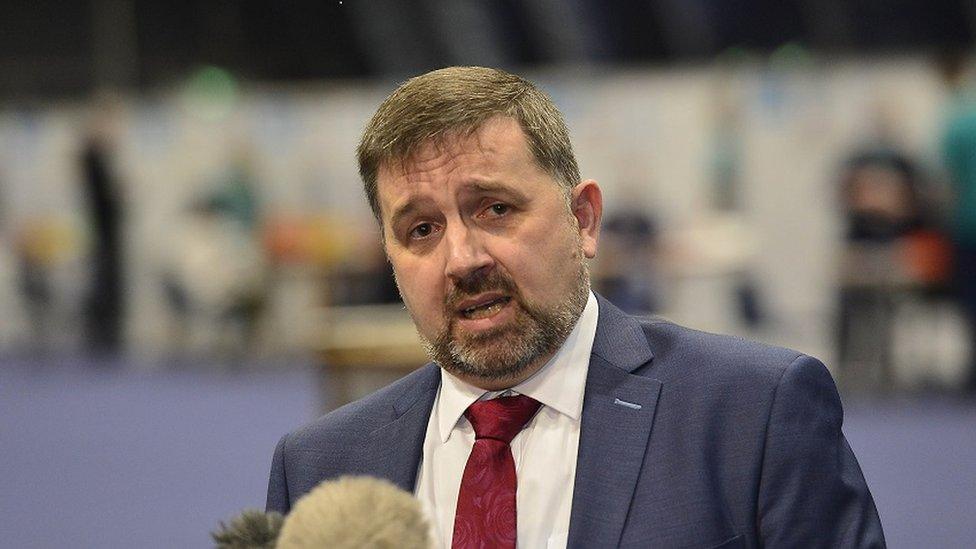
Robin Swann is taking legal advice on how decisions on Covid restrictions can be taken in the absence of an executive
While most restrictions have already been lifted, some around face coverings, guidance on social distancing, contact tracing and travel remain.
The Department of Health is taking legal advice on how decisions on Covid restrictions can be taken in the absence of an executive.
Sir Jeffery Donaldson said his understanding is that the UK Coronavirus Act empowers Health Minister Robin Swann to remove restrictions if he believes it is appropriate to do so,
Related topics
- Published3 February 2022
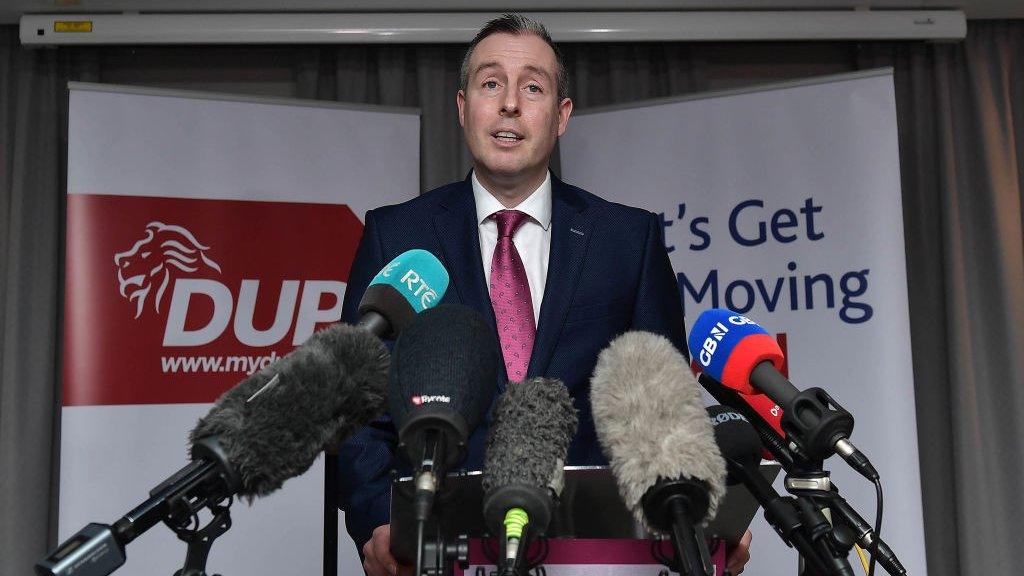
- Published26 January 2022
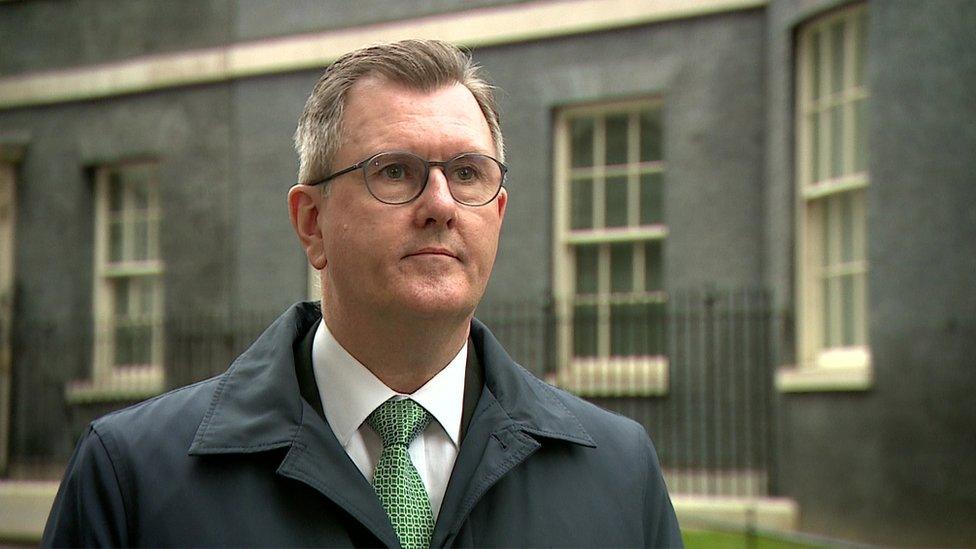
- Published8 June 2021
